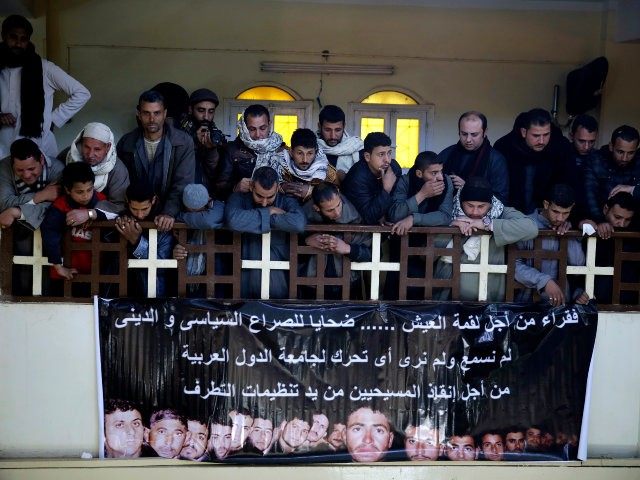Egypt’s Christians increasingly feel like second-class citizens, a member of the beleaguered religious minority told Breitbart Jerusalem.
The Egyptian media has been full of reports of violence against and harassment of Christians all across the country. In May, a Muslim mob attacked Christian-owned houses, stripped an elderly Christian woman, and paraded her through the streets of the village.
Earlier this week, a Muslim mob attacked a Christian house after they suspected a church was under construction inside.
Christian dignitaries have called on the government to repeal the restrictions on Christian freedom of worship in the country, and facilitate church building. They have condemned the government’s “foot-dragging” on the issue, saying the desire not to upset the Muslim community amounted to discrimination.
The Coptic Pope went so far as to say that Christian worship was starting to be perceived as a crime, with Christians needing a special permit to meet with their god.
Speaking to Breitbart Jerusalem, Majdi, a Christian resident of the Cairo area, said that Christians feel the same degree of intimidation in today’s Egypt as they did under the rule of the former Islamist president Muhammad Morsi.
The Christian community gave its unequivocal support to President Abdel Fateh Sisi, who overthrew Morsi in 2014. Several months before, then-military chief Sisi held a press conference in which he gave Morsi an ultimatum – the Coptic Pope was by his side.
“We can walk freely without fear of persecution, but the feeling is that when it comes to the freedom of religious worship we aren’t equal citizens,” Majdi said. “We feel compelled to apologize for being Coptic Christians and feel uncomfortable to ask to pray in a church.”
Majdi, a public servant, says that all his Muslim colleagues in the government office are free to pray, either at work or in a nearby mosque.
“This is something I can only dream of,” he said. “I am unable to pray at work, and cannot pray in a nearby church because there aren’t any. In the neighborhood where I live there are a few thousand Copts, but there’s not a single church.”
He said he never brings the issue up with his friends. “For them I’m a Christian, which is fine, but I’m not supposed to wear it on my sleeve. ‘Be different and don’t make a fuss about it.'”
Majdi says he’s disappointed in the government’s feckless response to the recent sectarian clashes.
“We thought things would be different under Sisi,” he says. “When Morsi was in power, we thought the government gave tailwind to harassment against us. Under Mubarak, we were the scapegoat. His was a corrupt regime that had no interest in kindling the issue of Christian rights. But because we were partners in Sisi’s arrival at power, it’s unfathomable that the discrimination against us will persist.”
Asked about the Christian Boutros Boutros Ghali, the former Foreign Minister and General Secretary of the United Nations, Majdi says that “Boutros Ghali was one of this country’s brightest men. He was appointed because the country didn’t want to lose him. There were other Christian ministers as well, but they are an exception to the rule. There are prominent Christians in business, and in culture and other areas. But as a general rule, we are marginalized and kept away from decision-making.”
“We don’t see discrimination and violence wherever we go, but there’s a problem around our right to freedom of worship,” he says. “We are part of this country, but we can’t talk about equality if our religion is looked down on and if our religious rites are being restricted.”

COMMENTS
Please let us know if you're having issues with commenting.